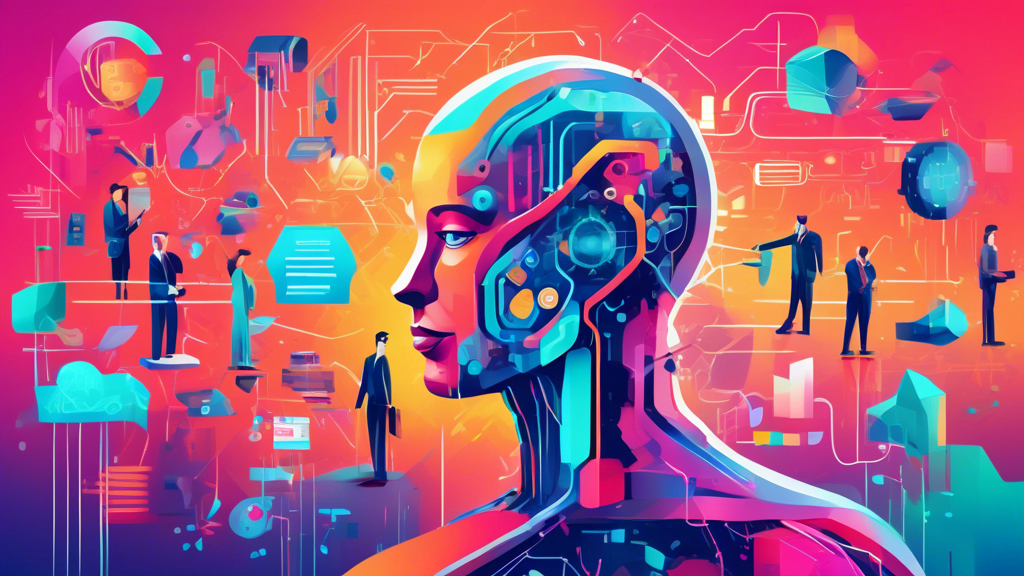AI Trends and Developments in 2024
AI’s Influence on Business and Economy
Artificial Intelligence (AI) is not just a buzzword anymore—it’s the veritable powerhouse driving significant economic changes worldwide. Did you know that AI is projected to inject a whopping $15.7 trillion into the global economy by 2035? That’s right, China and the United States are reaping the lion’s share of these gains. With 77% of companies experimenting with or already using AI, and 83% treating it as a top priority, it’s clear that AI’s influence on business strategies is far from trivial. It’s like the corporate world found its genie in a bottle—one that promises the moon but needs careful handling.
The job market’s landscape is also shifting dramatically. AI is expected to replace around 85 million jobs by 2025. Sounds terrifying, right? But here’s the silver lining: it’s poised to create 97 million new roles. Imagine trading some old, mundane tasks for new and exciting opportunities. Suddenly, 12 million more jobs are up for grabs. Now that’s what I call a net positive twist! So, while AI might feel like the villain sneaking into your workplace, it’s actually the hero in disguise, ushering in the next wave of innovation and job creation.
Technological Advances and Their Real-World Applications
AI’s recent technological advancements are nothing short of sci-fi come to life. Take OpenAI’s GPT-4 or Google DeepMind’s Gemini, for instance. These models aren’t just good with text; they bring together text, images, and audio, pushing the boundaries of what AI can do. You might equate training these models to sending a rocket to space, with costs skyrocketing to $78 million for GPT-4 and $191 million for Gemini Ultra. But the potential benefits? Priceless. Imagine your life with a personal assistant that doesn’t just respond to your texts but also understands and reacts to your photos and voice notes—AI is the ultimate multitasker!
Speaking of hands-on applications, AI’s involvement spans far and wide. Think about Google’s self-driving Toyota Prius or the AI-chatbots managing customer queries round-the-clock. These innovations are game-changers, improving efficiency and adding a dash of convenience to our lives. But as we embrace these high-tech solutions, regulatory bodies are working overtime to keep up. From the European Union’s AI Act to Biden’s executive orders, rules are being crafted to manage AI’s complex implications, like bias and liability, ensuring these futuristic toys don’t turn into unpredictable gremlins.
AI’s journey doesn’t end there; we’re on the brink of something even more exciting: AI with emotional and moral reasoning. Imagine AI that can not only understand your feelings but also act based on a sense of right and wrong. While this might seem like pie in the sky, researchers are laser-focused on making it a reality. And let’s not forget, AI is already making impressive strides in fields like medicine and robotics, from better diagnosing lung cancer to training robotic exoskeletons. Clearly, AI is much more than a geek’s dream—it’s transforming our world one byte at a time.
In the end, as we scroll through our social media feeds or ask our virtual assistants to play our favorite songs, do we really grasp how thick AI is woven into the fabric of our lives? According to surveys, 88% of non-users are still uncertain about AI’s impact. But as these technologies keep evolving, understanding and trust will hopefully grow, offering us not just the tools but the wisdom to use them wisely.
So next time you’re awed by an AI-powered gadget or wary of a robot outpacing your job, remember: AI is here to stay, making waves, creating jobs, and stirring debates. It’s a brave new world, and AI is the co-pilot steering us through it.
